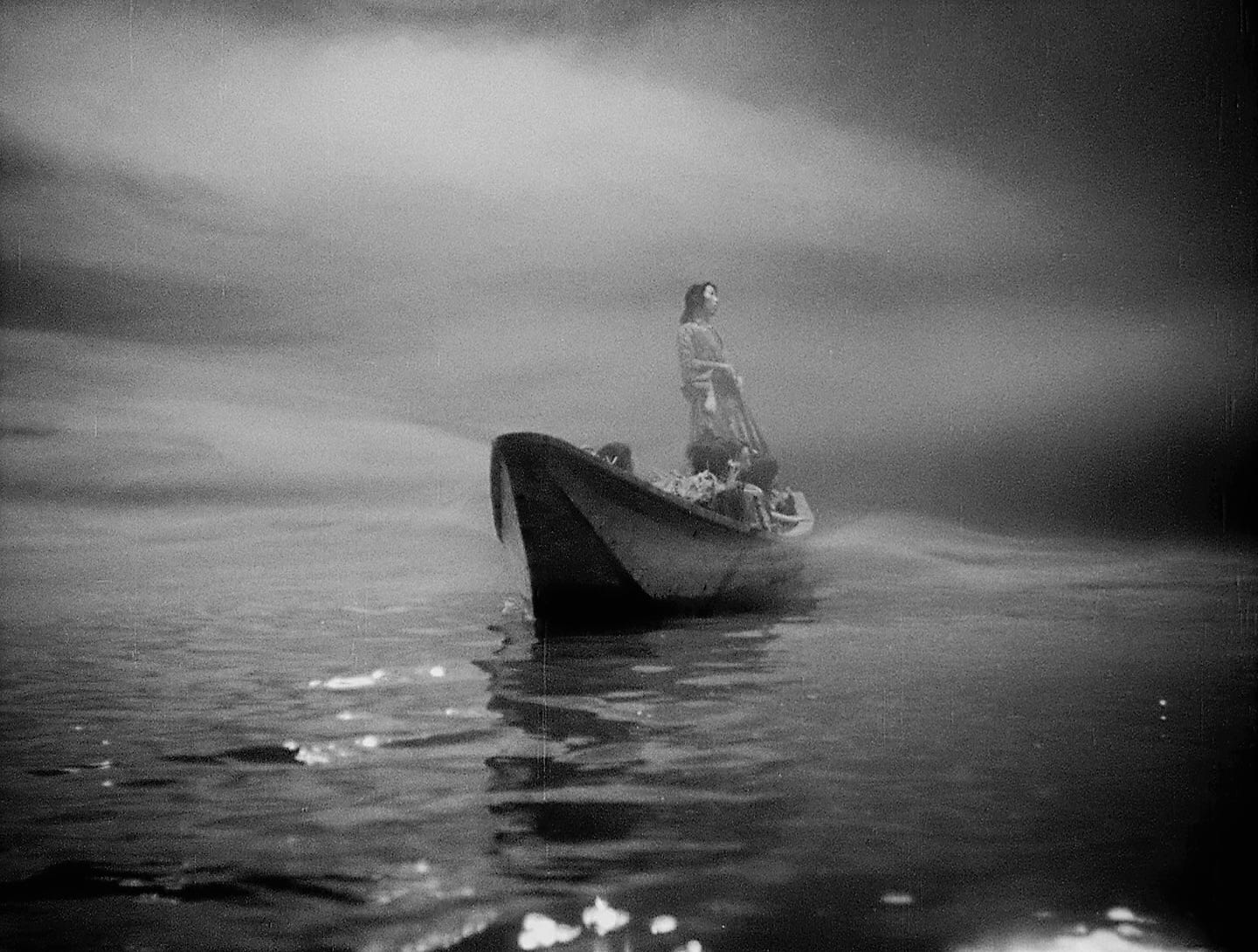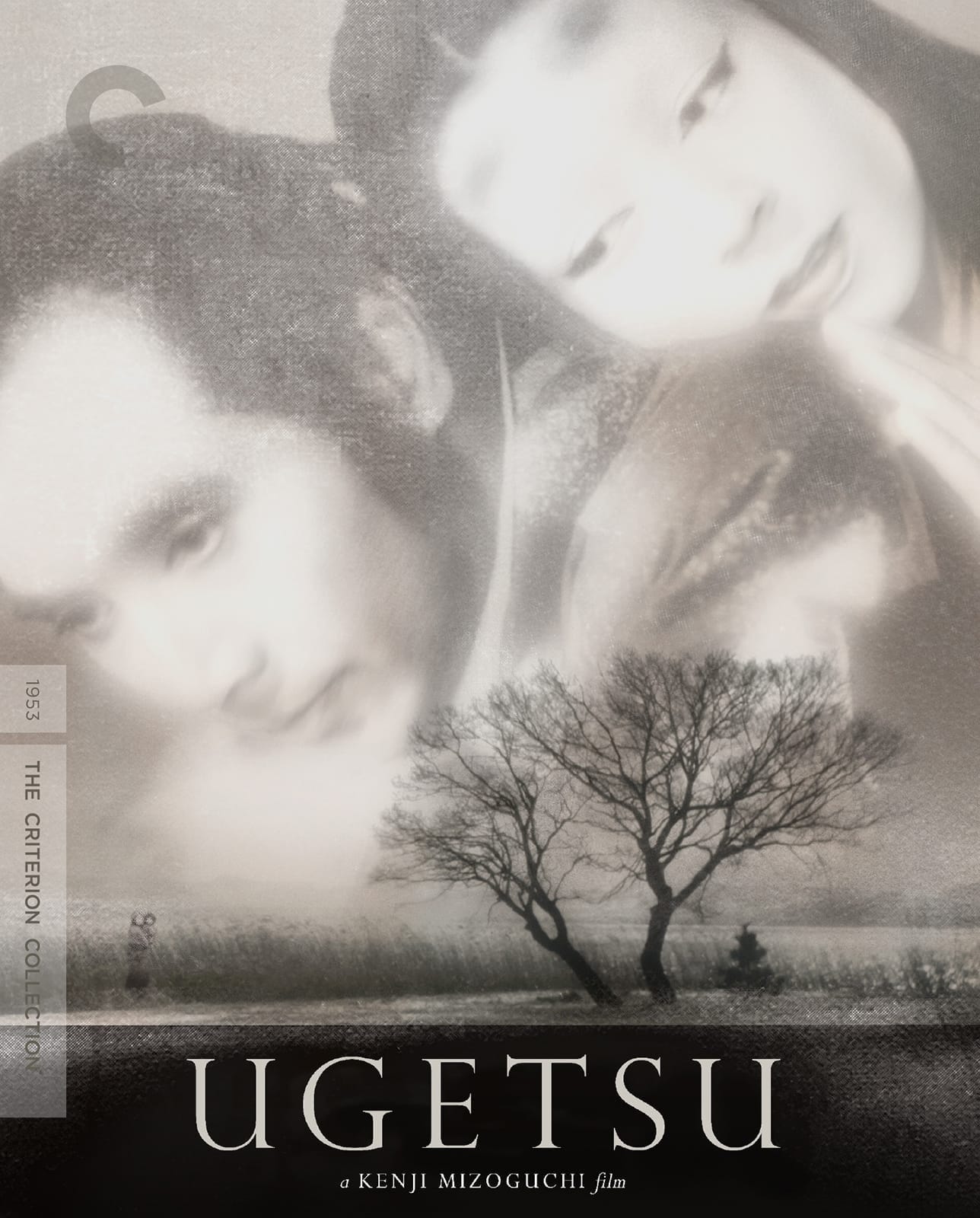For the last few years, I have used October to give myself a viewing assignment: a different horror film each day. Now that I have escaped the real life horror of New Zealand’s public service, I intend to write a piece inspired by each film.
My thirtieth film is Kenji Mizoguchi’s Ugetsu / 雨月物語 (1953).
What are you most afraid of? Zombies? Draculas? Blaculas? Maybe something more tangible like war, poverty or abuse. For millions of people throughout history, the scariest thing was being either the victim or the perpetrator of unspeakable violence, often both.
In 1953, Kenji Mizoguchi was grappling with the way that he had lost himself in his support of the Imperial Japanese regime during World War II. Like many men of his age, he had contributed to the wartime economy (in his case directing wartime propaganda) and had to reckon with the meaning behind his complicity. Many people have interpreted Ugetsu as a film about this fear.
In this adaptation of stories from Ueda Akinari’s 1776 book Ugetsu Monogatari, Genjūrō is a potter in the Warring States period who escapes his village with his wife Miyagi, young son, sister Ohama and brother-in-law Tōbei. Fleeing from an attack, they hope that they can find their fortune selling their wares in Ōmizo. Unfortunately they become separated leading to starkly different paths for each.
Tobei and Ohama end up playing significant roles in the wartime ecosystem. Eager to inflict death on others, the minute Tobei makes enough for a suit of armour and spear, he leaves his wife to become a samurai. She is raped by soldiers and is forced to become a sex worker. Their respective fates as perpetrators and victims of war crimes respectively would have no doubt felt raw to many audience members.
Most of the film centres on Genjūrō, who loses himself in a different way entirely. Soon after leaving his wife and son to fend for themselves on the shores of Lake Biwa, he encounters noblewoman Lady Wakasa. Supposedly enamoured with his pottery, she takes him into her mansion and they are soon wed. Lady Wakasa explains that her entire clan has been slaughtered during the war and that her dead father (represented by a samurai helmet) wants her to take a good husband so she can be happy. Genjūrō likely realises she is a ghost pretty quickly but doesn’t care—so wrapped up is he in this life of luxury that he forgets the family he has abandoned and embraces the lie.
For both men, the selfishness of their decision to embrace short-term gains comes back to bite them and they are cursed to survive the war and live with what they’ve done. This idea is depicted in a devastating epilogue.

I had wondered whether including this film in my month’s viewing based on the fact that it’s about a man marrying a ghost was a bit of a stretch. Ugetsu wouldn’t have necessarily registered as a horror film to all its viewers but there’s definitely something deeply horrific at its heart. This is a film about men haunted by their shitty decisions, women haunted by the decisions of their men and a culture that worships death and violence. What a tremendous picture.





![Ugetsu – [FILMGRAB] Ugetsu – [FILMGRAB]](https://substackcdn.com/image/fetch/$s_!hwKT!,w_1456,c_limit,f_auto,q_auto:good,fl_progressive:steep/https%3A%2F%2Fsubstack-post-media.s3.amazonaws.com%2Fpublic%2Fimages%2Fba992d38-029e-4f06-86c8-e37d6b3812dd_1472x1079.jpeg)
